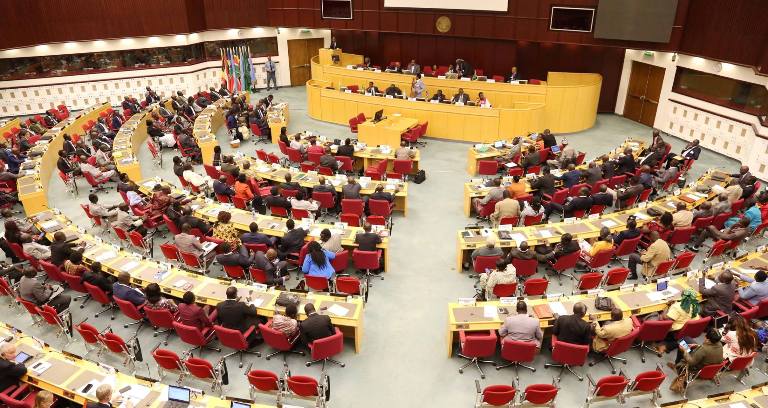Phase-2 of South Sudan peace revitalization talks ends without deal

May 23, 2018 (JUBA) – Rival parties in South Sudan peace talks concluded the Second Phase of the High-Level Revitalization Forum (HLRF) without striking a deal on the implementation of the governance and security arrangements.
In his closing remarks, the Chairperson of the IGAD Council of Ministers and Ethiopian Foreign Minister Workneh Gebeyehu Wednesday admitted the IGAD failure to bridge the gaps between the South Sudanese warring parties saying despite series of consultations conducted by the regional mediation, “we could not reach a break-through.”
Cebeyehu said the IGAD has submitted a bridging proposal to narrow the gaps between the parties based on identified challenges during the peace process.
“You may hear that some parties are not happy or other parties are content with the proposal of IGAD. But our consideration is strongly anchored on how the South Sudanese people would finally attain peace and tranquillity,” he further stressed.
The IGAD chair was alluding to a statement issued on Wednesday by the head of the SPLM-IO media committee Mabior Garang who announced his group rejection of the IGAD “A Bridging Proposal”, saying “it is not consistent with the current realities in South Sudan”.
“The IGAD “A BRIDGING PROPOSAL”, is an endorsement of the status quo which emerged ln Juba after the collapse of the ARCISS. The IGAD Proposal further rewards the regime in Juba for their intransigence throughout the peace process and for their well-documented role in precipitating the collapse of the ARCISS in July, 2016.”
“The SPLMA (IO) does not believe that simply distributing positions will resolve the conflict, the SPLMA (IO) objective is to effect fundamental change in our country,” Mabior said.
An activist in Addis Ababa attending the peace forum told Sudan Tribune that all the opposition factions, both armed and non-armed have rejected the proposal pointing it gives more powers ana d larger percentage in the power-sharing to the government of President Salva Kiir.
The opposition rejects the recognition of the 32 states created by President Kiir, saying it goes against the terms of the 2011 constitution and the 2015 peace agreement.
South Sudan’s cabinet affairs minister and head of the government negotiating team, for his part, said the government remains committed to the revitalization forum based on the June 12, 2017, resolution of the IGAD heads of state and government.
Minister Martin Elia Lomoro recalled in a statement released on Wednesday that the revitalization forum aims to: a) restoring cessation of hostilities, b) full implementation of the 2015 peace agreement and c) developing a realistic timeline and implementation schedule towards a democratic election at the end of the transitional period.
“The above three objectives of the High-Level Revitalization Forum do not include talk of renegotiating the Agreement on the Resolution of the Conflict In South Sudan on a new basis. Therefore there is no need for identification of new political actors because this can affect the meaning and composition of Transitional Government of National Unity,” Lomoro further stressed in his statement.
Minister Cebeyehu said the Council of Ministers of IGAD would meet in the very near future. Adding “the Council would then submit to the Summit to deliberate on the outcomes of the revitalization process”.
(ST)
